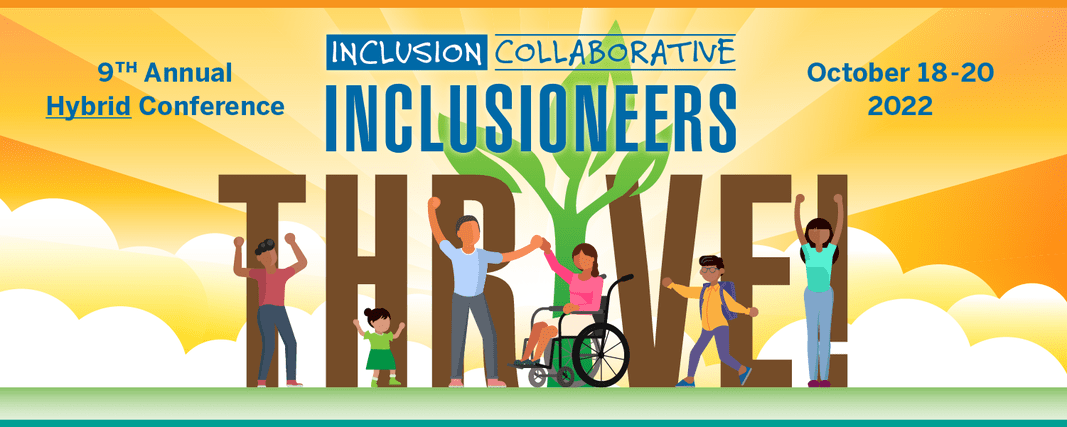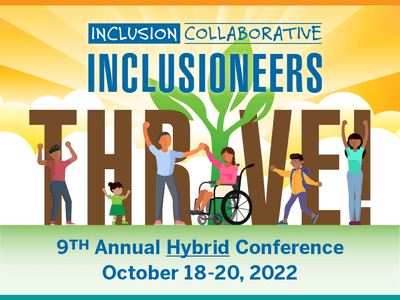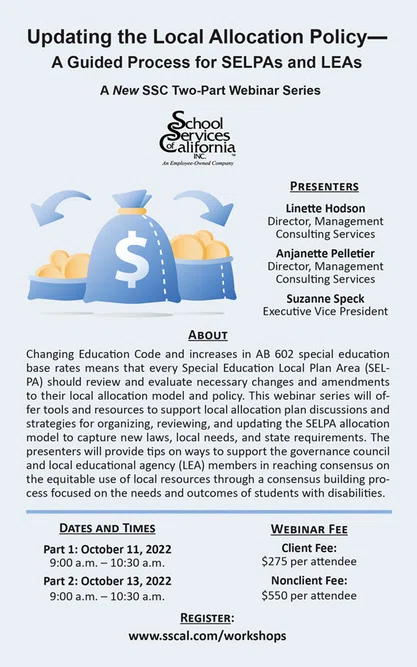CTC updated on draft literacy standards
September 5, 2022
The August meeting of the California Commission on Teacher Credentialing was attended by ACSA CTC Liaison Doug Gephart, who filed the following report.
In June 2022, the CTC’s first annual report to the Legislature on the implementation of SB 488 addressed some of the key requirements of the law as follows:
- By Sept. 1, 2022, the commission will ensure that all requirements regarding the content of teacher preparation in literacy instruction are included in the program standards of quality and effectiveness for the preliminary Multiple Subject, Education Specialist and Single Subject English Language Arts credentials.
- By Sept. 1, 2024, commission program standards and TPEs for preliminary Multiple Subject, Single Subject English Language Arts and Education Specialist credentials must include satisfactory completion of research-based comprehensive reading instruction, as specified, and incorporate the California Dyslexia Guidelines.
- By July 1, 2025, the commission must develop and implement a literacy instruction performance assessment that assesses all Multiple Subject and Education Specialist candidates for competence in effective means of teaching literacy, including but not limited to evidence-based methods of teaching foundational reading skills. This assessment must be aligned to the ELA/ELD Framework, program standards of quality and effectiveness, and TPEs.
- Before requiring successful passage of the literacy performance assessment, the commission must certify that the teacher education programs approved by the commission pursuant to section 44227 offer instruction in the knowledge, skills and abilities required by the assessment.
The commission’s Literacy Workgroup undertook a review of the commission’s adopted Educator Preparation Program Standards and related Literacy Teacher Performance Expectations and submitted recommendations for consideration by the commission in accordance with SB 488. The initial focus of the workgroup has been on needed updates to program standards. The literacy workgroup will have a final meeting on Sept. 13, 2022, to review the data from the field and surveys as well as feedback and direction from commissioners before recommending any final revisions they think necessary and appropriate prior. Staff will present the full set of Literacy Program Standards and TPEs to the commission for adoption in October 2022.
The great challenge for the commission with the requirements of SB 488 is to develop universal program standards and teacher performance expectations that will not only provide high standards and programs for the traditional K-12 community but to also meet the very unique developmental learning needs of PK-3 students and all students with dyslexia. Establishing standards for PK-3 and dyslexia needs that are a cookie cutter of grade 1 will not work. Literacy standards need to reflect the reality of the developmental stages of all early learners.
CalAPA Leadership Cycle Standard Setting Study Findings
The CTC also heard an update on the first four years of implementation of the California Administrator Performance Assessment and discussed study findings to set a passing score for each cycle of the CalAPA:
- Leadership Cycle 1: Analyzing Data to Inform School Improvement and Promote Equity.
- Leadership Cycle 2: Facilitating Communities of Practice.
- Leadership Cycle 3: Supporting Teacher Growth.
The standard setting panel recommended, and the commission approved, passing scores of 15 on Leadership Cycle 1, 14 on Leadership Cycle 2, and 14 on Leadership Cycle 3 and that no side conditions be applied at this time.
Requirements for the PK-3 ECE Specialist Instruction Credential
Most recently, at its June 2022 meeting the commission endorsed the proposed authorization statement and credential requirements for updating the current Early Childhood Education Specialist Instruction Credential (ECE Specialist).
The CTC reviewed and adopted the proposed regulations for the newly repurposed PK-3 Early Childhood Education Specialist Instruction Credential, as outlined below.
PK-3 Preliminary Credential Requirements: The requirements for the Preliminary PK-3 Early Childhood Education Specialist Instruction Credential, include the following:
- Possession of a bachelor’s or higher degree from a regionally accredited institution of higher education.
- Completion of a professional preparation program that meets the PK-3 ECE Program Standards and Teaching Performance and includes preparation to serve English learners.
- Passage of a commission-approved teaching performance assessment for multiple subjects in a PK-3 setting.
- Passage of either the RICA, or a commission-approved literacy performance assessment.
The subject matter requirement may be met by one of two options: Possession of a bachelor’s degree with a major in child development or early childhood education or completion of 24 semester units of coursework in early childhood education and/or child development.
PK-3 Clear Credential Requirements: The Clear PK-3 Early Childhood Education Specialist Instruction Credential requirements include possession of the Preliminary PK-3 Early Childhood Education Specialist Instruction Credential and either completion of a commission-approved teacher induction program, or possession of a valid National Board Certification in Early Childhood/Generalist. A credentialed teacher that has already completed a California teacher induction program and earned a Clear Single Subject, Multiple Subject, or Education Specialist teaching credential does not need to complete a second teacher induction experience. The professional preparation program models that may lead to the issuance of the Preliminary PK-3 Early Childhood Education Specialist Instruction Credential include:
- Integrated undergraduate teacher preparation program.
- Combined community college, baccalaureate, and/or post-baccalaureate teacher preparation program.
- Post-baccalaureate teacher preparation program.
- Teacher residency programs.
- Intern teacher preparation program.
- Professional Preparation Program Equivalency.
The proposed regulation includes 600 hours of clinical practice and may waive at least 200 hours of the required clinical practice experience in a PK or TK setting for experienced qualified PK in a Head Start childcare and development center serving preschool-aged children and verify six years or more of satisfactory, full-time teaching experience as a teacher serving preschool-aged children in a license-exempt preschool program Agency.
Full-time experience shall be defined as classroom-based teaching for at least four hours per day, for at least 75 percent of the school year. The proposed regulation also provides a pathway for fully credentialed Multiple Subject Credential holders to obtain the PK-3 Early Childhood Education Specialist Instruction Credential through an expedited pathway and possess an English learner authorization and must meet the subject matter requirements.
Assessments for MMSN and ESN credentials
The CTC approved the use of two teaching performance assessments: edTPA and Fresno Assessment of Student Teachers (FAST). These teaching performance assessments are for the Mild to Moderate Support Needs and Extensive Support Needs credential areas. Both models were reviewed for content as well as compliance with the commissions Assessment Design Standards.
Both model sponsors are directed to conduct standard setting studies for their assessments and recommend passing standards to the commission for approval.
Subject matter competency examinations: Annual report
Staff presented the CTC with information on the passing rates for commission-approved examinations over the past five years from 2016-17 through 2020-21. The annual report contains the statutory basis and purpose of each examination, the structure, the scoring process, the volume, and the first-time and cumulative passing rates are discussed in detail.
Institutional approvals
Gateway High School: Gateway High School has received Stage III approval by the CTC to offer a credential program. The next step in the process would be the review of Gateway High School’s response to the Program Standards by a Board of Institutional Review team. When these reviewers determine that the program standards are aligned, the proposed program will be considered for provisional program approval by the Committee on Accreditation. If approved, the institution will be authorized to offer the program for the time period specified by the commission.
Update on the enacted 2022-23 budget
The enacted 2022-23 budget for the CTC provides $330.5 million and total of 29 new positions in the agency to support the following programs and activities:
Fee Waivers – $24 million one-time General Fund to waive teacher examination and assessment fees. Eligible examinations include CBEST, CSET, RICA, TPA, edTPA and APA. One position is included to support administration and fiscal coordination of these two waivers.
Web Portal and Career Counselors – $1.4 million General Fund and nine positions; eight of these positions shall serve as career guidance counselors, credential experts, subject matter experts and resource specialists to help individuals seeking to make the transition to PK-12. One position is available to assist with the development and maintenance of a multifaceted web portal on the commission’s website and social media presence.
Early Childhood Education – $1.5 million General Fund and 11 positions (nine positions ongoing) to support Early Childhood Education preparation and licensure activities. These positions will ensure statutory compliance with work related to the newly mandated Universal Transitional Kindergarten and the expansion of the California State Preschool Program.
Data Collection and Reporting – $453,000 General Fund and four positions to support data gathering, research/analysis of CalSAAS, Cradle-to-Career, California’s PK-12 workforce, and teacher grant programs.
Grant Administration – $924,000 General Fund and five positions, of which $161,000 is one-time funding, to support the administration of multiple grant programs.
Teacher Residency Grant Program – The commission will receive a total of $250 million to support Teacher Residency Grant Programs that will add school counselors to the list of shortage fields and authorizes the residency programs to support candidates seeking a PK-3 early childhood education specialist credential.
Teacher Residency Technical Assistance Center – $20 million one-time General Fund to select a Local Educational Agency to serve as a statewide K-12 Teacher Residency Program Technical Assistance Center.
Integrated Undergraduate Grant Expansion – $20 million one-time General Fund to support a competitive grant program for public and private institutions to develop and implement integrated teacher preparation programs.
Reading and Literacy Grants – $15 million one-time General Fund to support credentialed teachers to earn a supplementary authorization in reading and literacy.
Accreditation –The 2022-23 budget removed the provisional language to continue suspending accreditation fees. Therefore, the commission will begin collecting accreditation fees again in the 2022-23 fiscal year.
Center for Teaching Careers – $1.7 million one-time General Fund to support the Tulare County Office of Education to continue administering the California Center on Teaching Careers.
Contact Us
www.acsa.org
© 2022 Association of California School Administrators











